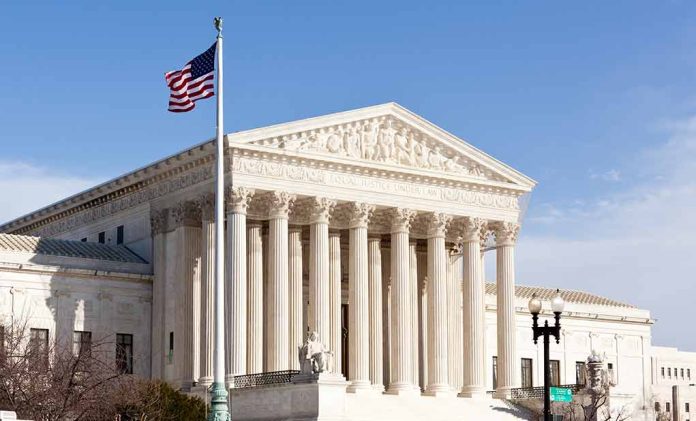
The Supreme Court is now weighing whether South Carolina can block Medicaid funds from going to Planned Parenthood, a case that could dramatically reshape healthcare access for low-income Americans across the nation.
Key Takeaways
- The case centers on whether South Carolina can exclude Planned Parenthood from its Medicaid program despite federal provisions about recipient choice of providers.
- A Medicaid recipient sued after being denied the ability to use her benefits at Planned Parenthood clinics in the state.
- South Carolina officials, supported by the Alliance Defending Freedom, argue states should have authority to determine qualified Medicaid providers.
- The case could set national precedent allowing other conservative states to block Medicaid recipients from accessing Planned Parenthood services.
- Federal law already prohibits Medicaid funds from being used for abortions, but South Carolina contends money is fungible.
State’s Rights vs. Patient Choice
The Supreme Court heard arguments in a pivotal case that examines whether South Carolina can prevent state-administered Medicaid funds from reaching Planned Parenthood. The legal battle began when Julie Edwards, a Medicaid recipient, filed suit against the state after being denied the ability to use her benefits at Planned Parenthood South Atlantic. This case, formally known as Medina v. Planned Parenthood South Atlantic, could have far-reaching implications for healthcare access across America.
At the core of the dispute are two fundamental questions: whether Medicaid recipients have the legal standing to sue states over provider restrictions, and whether states have authority to determine which healthcare providers qualify for Medicaid funding. John Bursch, representing South Carolina through the Alliance Defending Freedom, has positioned the state’s case as a matter of proper funding allocation and comprehensive healthcare delivery. Meanwhile, Governor Henry McMaster has been vocal in his support of the state’s efforts, aligning with other Republican-led states seeking similar restrictions.
Today at SCOTUS: South Carolina Fights for Right to Defund Planned Parenthood in Medicaid
The state of SC will defend its right to exclude abortion businesses from receiving Medicaid taxpayer dollars in Medina v. Planned Parenthood South Atlantic.
🧵🔽https://t.co/GMiDmTgzhf pic.twitter.com/5zFcxMD4P1
— SBA Pro-Life America (@sbaprolife) April 2, 2025
Legal Arguments Before the Court
South Carolina’s legal team argues that no provision in the Medicaid Act explicitly requires states to fund abortion providers. During oral arguments, several conservative justices, including Brett Kavanaugh and Neil Gorsuch, appeared skeptical of counterarguments presented by Planned Parenthood’s counsel. The state maintains that blocking funding to Planned Parenthood ensures Medicaid dollars are directed toward comprehensive women’s healthcare services rather than organizations that also provide abortion services, even though federal law already prohibits Medicaid funds from directly paying for abortions except in limited circumstances.
Nicole Saharsky, representing Planned Parenthood, countered by emphasizing that the case is fundamentally about patient choice. She argued that federal Medicaid provisions are designed to allow recipients to select any qualified provider willing to offer services. According to Saharsky, South Carolina has already established that Planned Parenthood meets all professional qualifications to provide care, making the state’s exclusion unlawful under federal statutes that specifically address freedom of provider choice for Medicaid recipients.
Broader Implications for Healthcare Access
The case holds significant national implications as approximately $700 million in federal funding went to Planned Parenthood between 2022 and 2023. If South Carolina prevails, states like Texas, Mississippi, Missouri, and Arkansas—which have already attempted similar restrictions—could follow suit, potentially creating a domino effect across conservative states.
Planned Parenthood South Atlantic’s Interim President and CEO, Paige Johnson, has expressed concern that restricting Medicaid patients’ access to their clinics would disproportionately harm those already struggling financially. South Carolina officials counter that numerous other healthcare providers offer similar services without the controversies surrounding abortion. Governor McMaster has specifically highlighted that South Carolina residents do not want their tax dollars connected to abortion services, even indirectly, and that the state has ample alternative providers for maternal health services.









